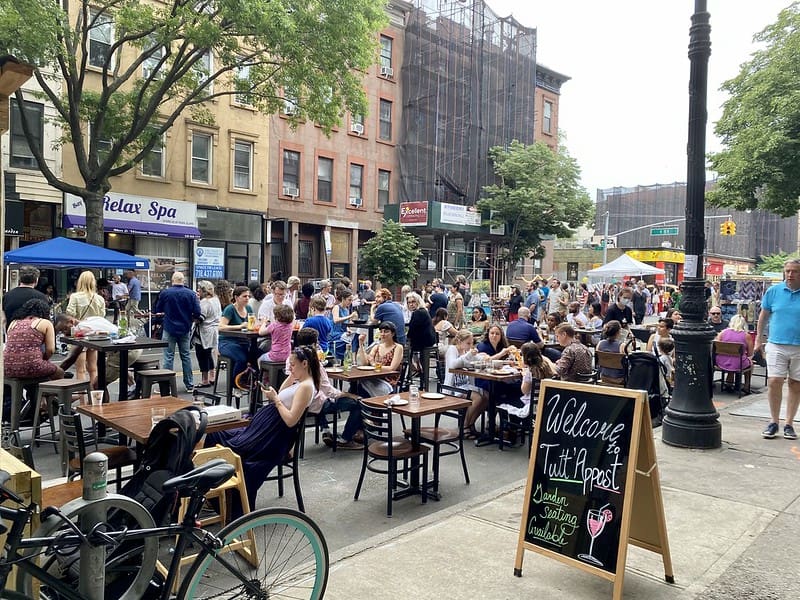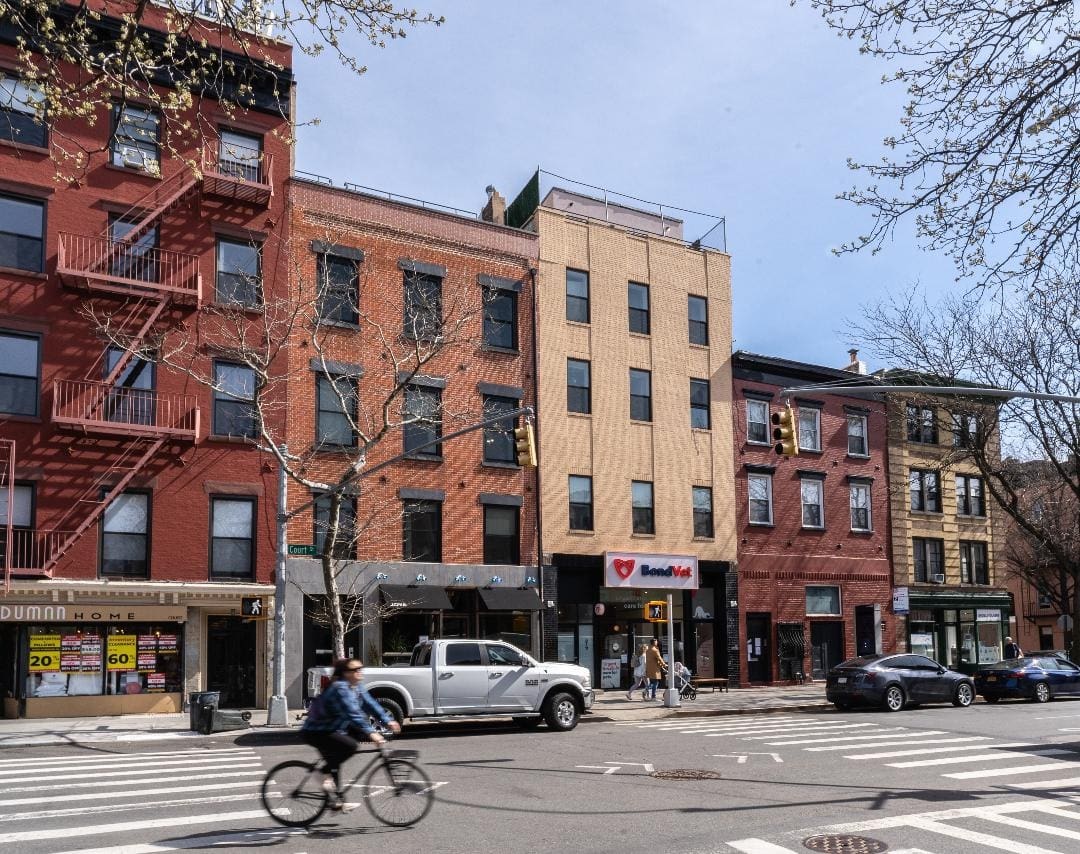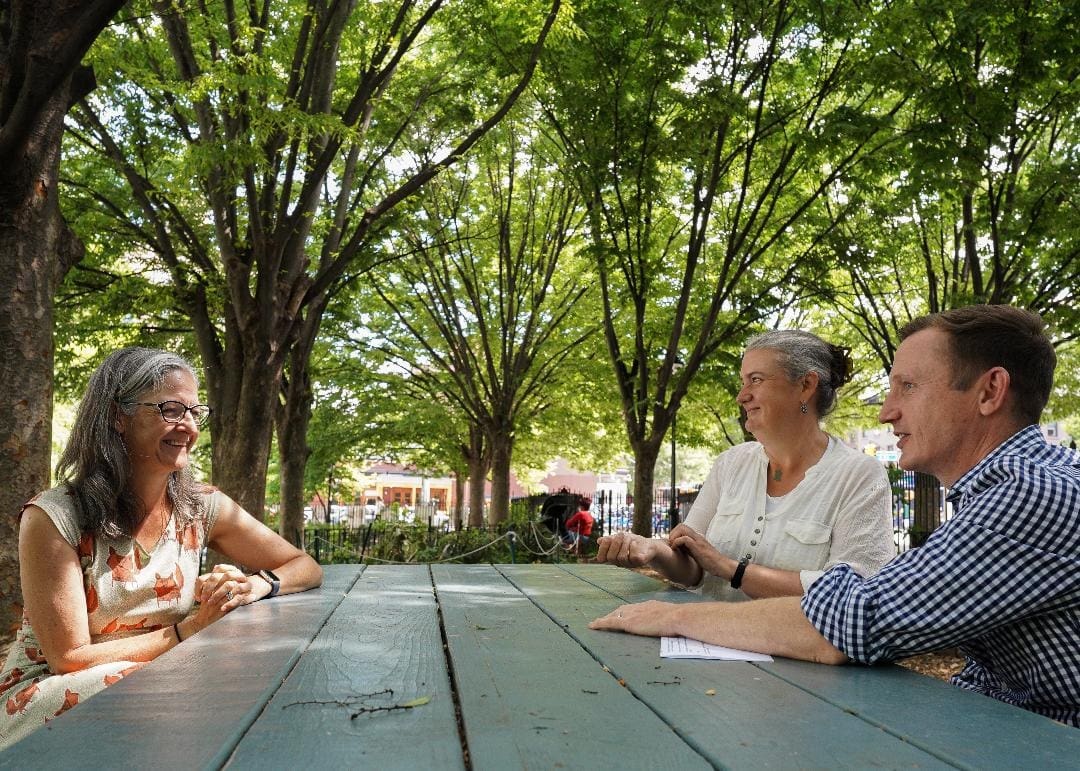
By Nathaniel Mallon, Verada Retail
Situated along the western shoreline of Brooklyn is one of the most desired, family-friendly neighborhoods in the city – Park Slope. As home to New York’s “Other Fifth Avenue,” a hotbed for laid-back, family-oriented businesses, as well as homegrown food and beverage concepts, retailers from across the city are seeking an opportunity to move into this beloved borough. Assisting both new and existing businesses is the Park Slope Fifth Avenue Business Improvement District (BID), a local organization composed of property owners and commercial tenants who are dedicated to promoting business development and improving the quality of life for locals.

Nate Mallon, managing partner at Verada Retail, a one-stop-shop that leverages the latest technology to serve commercial real estate landlords and retail tenants, recently connected with Joanna Tallantire, executive director, and Erika Clark, president, of the Park Slope Fifth Avenue BID to discuss what is happening with the area retailers. They spoke about Park Slope’s current environment and reviewed the improvements local retailers are looking for during the post-pandemic recovery phase.
BIDs Invest in NYC Boroughs
A BID is a self-taxing entity established by property owners to enhance the economic vitality of a specific commercial area within a city. Once taxes are collected, those funds go back into projects to make improvements to the area controlled by the BID. These districts exist in nearly every major city in the United States, including Los Angeles, Chicago, Houston, Philadelphia, Atlanta, San Francisco, Seattle, and Washington, D.C. With 76 BIDs spread across all five boroughs, New York City has the most of any metropolitan area.

The Importance of the Park Slope Fifth Avenue BID
Established in January 2009, the Park Slope Fifth Avenue BID represents a stretch of real estate from Dean Street to 18th Street in Brooklyn. Its mission “is to support the businesses, property owners, residents and institutions on Fifth Avenue in Park Slope by enabling community engagement and creativity; fostering innovation and growth; advocating for inclusive economic sustainability; and enhancing quality of life for all!”
Joanna summarized the organization’s purpose as follows: “Our mission is really to make the Avenue welcoming for all and help businesses to thrive and make it a good place to enjoy and play for everyone and support each other and build a strong community.”

Since its inception, the Park Slope Fifth Avenue BID has focused on a variety of programs and initiatives designed to bring success to local businesses and thereby improve the position of both landlords and tenants. It has focused on various beautification projects and hosted a variety of local events.
In its most recent report, the BID shared in detail the initiatives it has taken to help local businesses. They include providing informational sessions on federal, state, and city regulations; hosting educational events; blasting out webinars; and participating in door-to-door outreach to ensure all businesses have access to the BID’s various resources.
Benefits of Working with a BID
As Park Slope’s experience demonstrates, one of the most significant benefits of the BID structure is that it creates a reliable source of funding for supplemental services and programs. Because they are self-managed and funded by the owners themselves, BIDs typically offer the ability to respond more quickly than the public sector to the changing needs of the business community. This became vitally important when the COVID-19 pandemic led many retailers to shut their doors – some temporarily, others permanently.
Recovering from the COVID-19 Pandemic
Like businesses in many communities across the country, Park Slope retailers were negatively impacted by the COVID-19 pandemic. During their discussion, Nate, Joanna, and Erika spoke about the impact of the coronavirus and how the retail industry is rebounding from this challenging period.
In 2020, Joanna explained that Park Slope lost approximately 45 businesses. Per the BIDs September 2021 report, businesses still faced high rents and low staff. Thankfully, Joanna continued, the community has gained 90 businesses in the past 18 months, including restaurants, eateries, specialty groceries, medical providers, and “a lot of kid’s stuff.”
The Future of Park Slope Retail
While the neighborhood is experiencing a positive turnaround following the pandemic, commercial tenants still have many concerns about their long-term success.
Joanna and Erika shared some feedback they recently received from local tenants.
Economic Assistance
Although we are past the height of the pandemic, many businesses are still experiencing economic challenges. As Joanna explained, these businesses now need grants and government assistance to get out of the red. She noted that many Park Slope businesses never received assistance during the pandemic, and, as a result, there is still a sense of “sadness” in the community. Instead of overlooking the situation, Joanna suggested that government agencies should work with hurting tenants and landlords to help them get back to pre-pandemic operations.
Education
As mentioned previously, many new businesses have opened in the area while others have closed their doors permanently. Some community members who lost their jobs leveraged the opportunity to turn their dreams into reality by opening a retail location and creating a new future.
While independent businesses tend to promote community, operators often face unforeseen challenges that must be dealt with before they negatively impact the area. Erika explained, “I think for some [retailers], the dream is going to meet a harsh reality, and that worries me [because] some didn’t necessarily … understand what they were coming into. I think we need to [provide] some more education on opening your own business … it’s one of the things that Joanna has been amazing at, meeting with people before they sign their lease – they come to us and say, ‘I want to open something.’”
The Impact of Open Streets
In the interview, Joanna and Erika excitedly shared the impact of the Open Streets initiative and the benefits it has provided retailers. Every weekend from late April to late October, Open Streets shuts down parts of the community from vehicle traffic to promote foot traffic. Open Streets temporarily allows vendors to pop up and encourages locals to explore the area’s shops and restaurants.
Unfortunately, the BID has recently faced some barriers with its Open Streets concept. While Open Streets can help stores and businesses remain open, some residents are unhappy about street closings. In addition, the BID has to support these events through fundraising with minimal assistance from the city.
While some pushback has occurred, retailers stress how vital Open Streets is to them. For locals who want to help, Joanna explained how: “We need everyone who [appreciates the concept] to tell their elected officials that they love Open Streets. Because it’s only the people who don’t like it that are being heard. We need more space and support.”
Park Slope BID: Building a Prosperous Future
During the pandemic, BIDs played an important role in providing cities with up-to-date information on the unfolding health crisis from local and state governments. Today, they are assisting retailers with post-pandemic economic recovery. In Brooklyn, the Park Slope Fifth Avenue BID is creating an inviting space for existing and new businesses alike. Joanna enthused, “We will never turn the small business away.”










